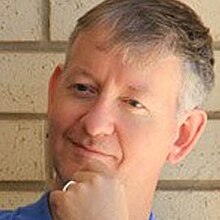| Peter Gill | |
|---|---|
 | |
| Born | Peter Malcolm Wallace Gill (1962-11-09) 9 November 1962 (age 62) Auckland, New Zealand |
| Alma mater | Australian National University |
| Scientific career | |
| Fields | Chemistry |
| Institutions | |
| Thesis | A theoretical approach to hemi-bonded systems and their dicationic analogues (1988) |
| Doctoral advisor | Leo Radom |
| Other academic advisors | John Pople |
Peter Malcolm Wallace Gill (born 9 November 1962) is a New Zealand theoretical and computational chemist known for his contribution to density functional theory (DFT). He is an early and main contributor to the computational chemistry software Q-Chem and was the president of the company during 1998–2013. He is especially known for developing the PRISM algorithm for evaluating two-electron integrals and linear-scaling DFT, as well as self-consistent field method for excited state electronic structure.
Education and career
Gill was born in Auckland and received his BSc in 1983 and MSc in 1984 from the University of Auckland. He received a PhD in 1988 from the Australian National University under the supervision of Leo Radom. During this time, he investigated hemi-bonding and the convergence of perturbation theory in quantum chemistry. After graduation, he conducted postdoctoral work with John Pople at Carnegie Mellon University from 1988 to 1993. Following this stint, Gill accepted a lectureship at Massey University in 1993. He became a lecturer at the University of Cambridge in 1996. In 1999, Gill became the inaugural chair of theoretical chemistry at the University of Nottingham. He moved to Australia and became a professor at the Australian National University in 2004 and later moved to the University of Sydney in 2019 as the Schofield Chair in Theoretical Chemistry.
In 2001, Gill wrote an essay pronouncing the demise of density functional theory thanks to the rise of hybrid functionals for exchange interactions between electrons.
Honors and awards
Gill is the president of the World Association of Theoretical and Computational Chemists (WATOC) and received the Dirac Medal in 1999 and the Schrödinger Medal in 2011 from WATOC. In 2013, Gill received the Fukui Medal from APATCC. Gill was elected a Fellow of the Australian Academy of Science in 2014 and received the David Craig Medal from the Australian Academy of Science in 2019. In 2015 Gill was inducted to the International Academy of Quantum Molecular Science.
References
- ^ "Peter Gill, International Academy of Quantum Molecular Science". www.iaqms.org. Retrieved 25 October 2023.
- ^ "Peter Gill". www.science.org.au. Retrieved 25 October 2023.
- ^ Head-Gordon, Martin; Gilbert, Andrew T. B.; Loos, Pierre-François; Radom, Leo (19 May 2023). "Introduction to the Peter M. W. Gill special issue". Molecular Physics. 121 (9–10). Bibcode:2023MolPh.12119934H. doi:10.1080/00268976.2023.2219934. ISSN 0026-8976. S2CID 259457084.
- Radom, Leo (5 December 2019). "Autobiography of Leo Radom". The Journal of Physical Chemistry A. 123 (48): 10348–10358. Bibcode:2019JPCA..12310348R. doi:10.1021/acs.jpca.9b07390. ISSN 1089-5639. PMID 31801352. S2CID 208646496.
- Gill, Peter M. W. (2001). "Essay: Obituary: Density Functional Theory (1927-1993)". Australian Journal of Chemistry. 54 (11): 661–662. doi:10.1071/ch02049. ISSN 1445-0038.
- Becke, Axel D. (1 April 2014). "Perspective: Fifty years of density-functional theory in chemical physics". The Journal of Chemical Physics. 140 (18): 18A301. Bibcode:2014JChPh.140rA301B. doi:10.1063/1.4869598. ISSN 0021-9606. PMID 24832308.
- "Dirac - medal". watoc.net. Retrieved 25 October 2023.
- "2019 awardees | Australian Academy of Science". www.science.org.au. Retrieved 25 October 2023.
- "IAQMS news archive". www.iaqms.org. Retrieved 6 January 2024.
- Living people
- 1962 births
- New Zealand chemists
- Scientists from Auckland
- University of Auckland alumni
- Australian National University alumni
- Academic staff of the Australian National University
- Academics of the University of Cambridge
- Academics of the University of Nottingham
- Academic staff of the University of Sydney
- Computational chemists
- Theoretical chemists
- Fellows of the Australian Academy of Science
- Academic staff of Massey University